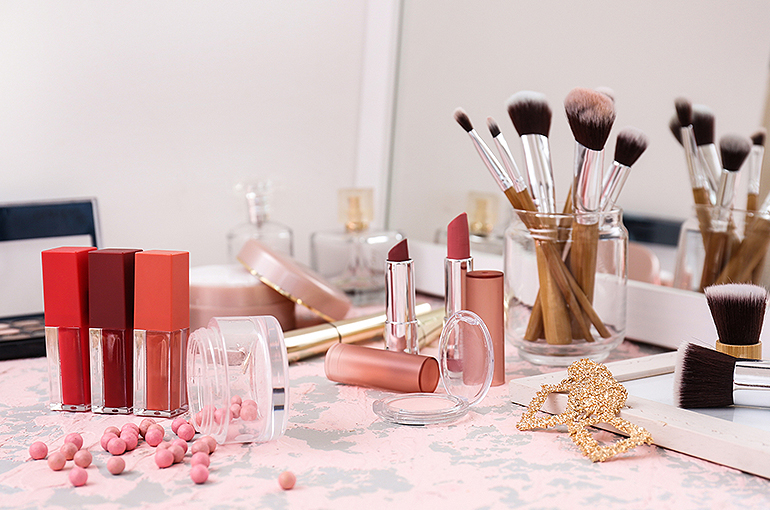 Big Players Thrive as Smaller Beauty Brands Exit Chinese Market
Big Players Thrive as Smaller Beauty Brands Exit Chinese Market(Yicai) July 17-- Cosmetics sales in China have become increasingly concentrated among top-tier beauty brands, forcing many small and mid‑sized players to close stores or exit the market entirely.
Retail sales of cosmetics in the country rose 2.9 percent to CNY229.1 billion (USD31.9 billion) in the first half from a year ago, according to data released by the National Bureau of Statistics on July 15. Industry insiders said the leading big brands have captured ever more market share.
The number of smaller brands shutting up shop in China in the six months ended June 30 reached double digits, according to Yicai’s calculations.
Sa Sa International Holdings, one of Asia’s leading beauty product retailers, closed its last 18 physical outlets in the Chinese mainland last month. Having entered the market 20 years ago, the Hong Kong-based company’s mainland business is now online only.
Sienu, a high-end skincare brand owned by South Korea’s Amorepacific, opened its shop on Chinese online retail platform JD.Com back in 2022. But this year, the firm closed its overseas flagship store on Chinese e-commerce marketplace Tmall.
Another of Amorepacific’s brands, Innisfree, also shuttered its flagship store on Tmall earlier this month. During its heyday, Innisfree had more than 800 outlets in China, but the number began to dwindle after the once-booming popularity of South Korean culture began to wane.
Early this year, Shihyo, a luxury brand launched by French cosmetics giant L’Oreal, announced the closure of all its online shops in China and the end of its official website’s business. Then in April, Tatcha, a skincare brand under UK-based consumer goods behemoth Unilever, also closed its Tmall shop.
Sources at these companies told Yicai that fierce competition has driven major players to “streamline” their brand portfolios, cutting underperformers and reallocating resources to established, high‑growth labels, while the costs of doing business in China has risen to a level that is unsustainable for niche sub-brands.
The companies will instead invest resources in more mature and popular brands, the insiders said.
China’s own beauty product companies have made a splash in the capital market this year, with at least 10 cosmetics-related businesses either listing or announcing plans to go public in the first six months.
This month, Beijing-based Dr. Plant filed for the main board of the Shenzhen Stock Exchange. In February, personal care brand Softto submitted its prospectus for a Nasdaq listing to the US Securities and Exchange Commission.
Editor: Tom Litting